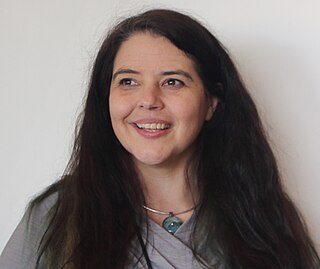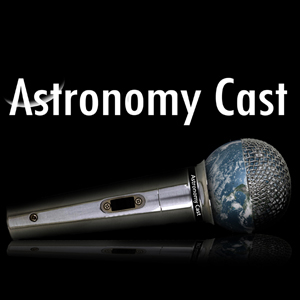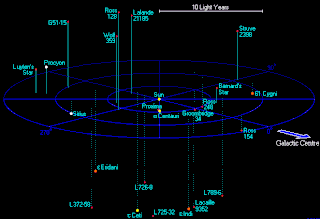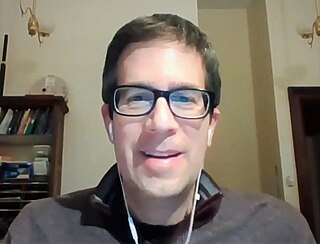
The Institute of Astronomy (IoA) is the largest of the three astronomy departments in the University of Cambridge, and one of the largest astronomy sites in the United Kingdom. Around 180 academics, postdocs, visitors and assistant staff work at the department.

Skepticality was the official podcast of The Skeptics Society's Skeptic magazine. Beginning in May 2005, the podcast explores rational thought, skeptical ideas, and famous myths from around the world and throughout history. Each episode is an audio magazine featuring regular segments by contributors who are specialized in specific areas of critical thought followed by featured content which is usually in the form of an interview with a researcher, author, or individual who is helping promote skeptical thought and/or science in an effective way. It has featured interviews with James Randi, and scientists, such as authors and astronomers Phil Plait and Neil deGrasse Tyson, Greg Graffin from Bad Religion, Adam Savage from the MythBusters, songwriter Jill Sobule, author Ann Druyan and science communicator Bill Nye.

Scott Carl Sigler is an American author of science fiction and horror and a podcaster. Scott is a New York Times No. 1 bestselling author of nineteen novels, seven novellas, dozens of short stories, and thousands of podcast episodes. He is a co-founder of Empty Set Entertainment, which publishes his young adult Galactic Football League series. He lives in San Diego.

Travis Unwin, known professionally as Evo Terra, is an American podcaster, author, radio broadcaster, and businessman based in Bangkok, Thailand. Terra is the author of Podcasting For Dummies, originator of The Beer Diet, a travel blogger, and an early pioneer in podcasting.

Escape Pod is a science fiction podcast magazine produced by Escape Artists, Inc. It proclaims itself "the world's leading science fiction podcast". The present co-editors are Mur Lafferty and S. B. Divya.
The Parsec Awards were a set of annual awards created to recognize excellence in science fiction podcasts and podcast novels. The awards were created by Mur Lafferty, Tracy Hickman and Michael R. Mennenga and awarded by FarPoint Media. They were first presented in 2006 at DragonCon. In 2009 the awards were described as "one of the most recognizable honors in science and fiction podcasting". The awards were given from 2006 to 2018.

Mur Lafferty is an American podcaster and writer based in Durham, North Carolina. She was the editor and host of Escape Pod from 2010, when she took over from Steve Eley, until 2012, when she was replaced by Norm Sherman. She is also the host and creator of the podcast I Should Be Writing. Until July 2007, she was host and co-editor of Pseudopod. She was the Editor-in-Chief of the Escape Artists short fiction magazine Mothership Zeta until it went on hiatus in 2016.

Pamela L. Gay is an American astronomer, educator, podcaster, and writer, best known for her work in astronomical podcasting and citizen science astronomy projects. She is a senior education and communication specialist and senior scientist for the Planetary Science Institute. Her research interests include analysis of astronomy data, as well as examination of the impact of citizen science initiatives. Gay has also appeared as herself in various television documentary series.

Astronomy Cast is an educational nonprofit podcast discussing various topics in the field of astronomy. The specific subject matter of each episode shifts from week to week, ranging from planets and stars to cosmology and mythbusting. Premiering on September 10, 2006, the weekly show is co-hosted by Fraser Cain and Dr. Pamela L. Gay. Fraser Cain is the publisher of the space and astronomy news site Universe Today and has a YouTube channel with over 200,000 subscribers. The other host, Dr. Pamela L. Gay, is a Senior Education and Communication Specialist and Senior Scientist for the Planetary Science Institute and the director of CosmoQuest. Each show usually has a length of approximately 30 minutes, and all shows, past and present, are accessible for download through the Astronomy Cast archive, as well as in podcast format.

A light-year, alternatively spelled light year, is a unit of length used to express astronomical distances and is equal to exactly 9460730472580.8 km, which is approximately 5.88 trillion mi. As defined by the International Astronomical Union (IAU), a light-year is the distance that light travels in vacuum in one Julian year. Despite its inclusion of the word "year", the term should not be misinterpreted as a unit of time.

Philippa Ballantine, who also used the pen name Pip Ballantine, is a contemporary New Zealand author of speculative fiction and an avid podcaster. She now lives in Manassas, Virginia, with her husband and collaborator Tee Morris.
Brian William Koppelman is an American television and film writer, producer and director. Koppelman is the co-writer of Ocean's Thirteen and Rounders, a producer of films including The Illusionist and The Lucky Ones, the director of films including Solitary Man and the documentary This Is What They Want for ESPN's 30 for 30 series, and the co-creator, showrunner, and executive producer of Showtime's Billions and Super Pumped: The Battle for Uber.

George Joseph Hrab is an American drummer, guitarist, composer and podcaster known for performing rock, funk and jazz and for exploring atheist, skeptic and science themes in his work. He has released six albums as a solo artist.

MonsterTalk is an audio podcast originally presented by the Skeptics Society's Skeptic magazine but broke ties in 2019. Since 2019 it has been an independent podcast under the "Monster House, LLC" banner. The show critically examines the science behind cryptozoological creatures, such as Bigfoot, the Loch Ness Monster, and werewolves. It is hosted by Blake Smith and Karen Stollznow, and produced by Blake Smith. In 2012, MonsterTalk was awarded the Parsec Award for the "Best Fact Behind the Fiction Podcast".

Brady John Haran is an Australian-British independent filmmaker and video journalist who produces educational videos and documentary films for his YouTube channels, the most notable being Computerphile and Numberphile. Haran is also the co-host of the Hello Internet podcast along with fellow educational YouTuber CGP Grey. On 22 August 2017, Haran launched his second podcast, called The Unmade Podcast, and on 11 November 2018, he launched his third podcast, The Numberphile Podcast, based on his mathematics-centered channel of the same name.

Emily Stewart Lakdawalla is an American planetary geologist and former Senior Editor of The Planetary Society, contributing as both a science writer and a blogger. She has also worked as a teacher and as an environmental consultant. She has performed research work in geology, Mars topography, and science communication and education. Lakdawalla is a science advocate on various social media platforms, interacting with space professionals and enthusiasts on Facebook, Google+ and Twitter. She has appeared on such media outlets as NPR, BBC and BBC America.
SF Signal was a science fiction blog and fanzine published from 2003 to 2016. The site was launched by John DeNardo and JP Frantz and focused on writings, events, and other topics focusing on the genres of science fiction, fantasy, and other related genres. It hosted three podcasts, one of which won the 2014 Hugo Award for Best Fancast. The site itself won two Hugo Awards for Best Fanzine, 2012 and 2013.

The Jodcast is a monthly podcast created by astronomers at Jodrell Bank Centre for Astrophysics (JBCA), University of Manchester in Manchester, England. It debuted in January 2006, aiming to inspire and inform the public about astronomy and related sciences, to excite young people with the latest astronomy research results, to motivate students to pursue careers in science, and to dispel stereotypes of scientists as incomprehensible and unapproachable.

Dean Regas is an American astronomer, public speaker, author, and television host. He is most widely known as the cohost of the syndicated television show Star Gazers, which airs daily on more than 100 PBS stations around the world. He was the Outreach Astronomer for the Cincinnati Observatory from 2000 to 2023 where he specialized in astronomy education and public speaking. Regas is the author of three books Facts From Space!, 100 Things to See in the Night Sky, and 100 Things to See in the Southern Night Sky.















